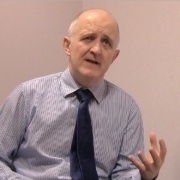
YES
The NHS has to change: the society it operates in has utterly changed. Our health systems have fallen victims of their own success.
People are living longer despite acquiring or surviving conditions that in the last century would have been fatal or untreatable. Long-term conditions now have the biggest impact on health and care resources. Emergency admissions to hospital represent a huge cost, and where they can be prevented represent poor quality care.
The traditional, reactive, one-size-fits-all biomedical model is floundering in the face of the changing nature of the demand from patients.
US doctor and campaigner Barbara Starfield always maintained that the best health economies have strong primary care at their heart. Now the new unplanned admissions DES recognises the important role general practice plays in addressing the challenges of the future by incentivising proactive anticipatory care through applying the triple therapy of risk stratification, care-planning and coordinated care.
It also reaffirms the importance of generalism, continuity of care and holistic care – the bedrock of general practice.
The DES supports what many GPs have already adopted as best practice. Many GPs in the UK have already applied components of the three-pronged approach set out in the enhanced service, with benefit for patients and communities – resourcing GPs for work they had previously done through their own initiative (such as John Oldham’s QIPP scheme for patients with long-term conditions).
Given the pressures on general practice – namely from rising demand, and increasing complexity of care – we need to mobilise the potential of general practice on a national scale. The NHS has approximately £2,000 per person of taxpayers’ money to invest in healthcare. Roughly £200 of that is used for primary care, and is £1000 is used in the acute sector. On average, an acute trust services 300,000 people, a practice 6,500.
But a 4% increase in acute activity means that the health economy has to find the money from somewhere else. Given the ratio of investment, that would translate into a 20% disinvestment in primary care.
If one practice provides proactive anticipatory care to their patients, it will improve care and reduce costs for their registered list, but provides little impact on the trust’s budgets. But fifty practices mobilising together is completely different, and could create real savings in acute care.
CCGs have already started to bring the knowledge and expertise of local clinicians to bear on service design, but the planning guidance has made it clear that CCGs need to invest more to support GPs.
The DES celebrates the potential and importance of general practice. It has the potential to restore continuity of care to its rightful place, as well as improving the quality of care that GPs can deliver.
The DES will support a sustainable NHS, now and for future generations, and GPs should certainly sign up to do it.
Dr Martin McShane is NHS England director of care for long-term conditions. He was formerly a GP in the Peak District.

NO
Few would challenge the recently published strategy for improving primary care. It focusses on the general practitioner’s role in personal care and continuity, providing support for the frail elderly so that they can be looked after in their own communities and cuts in bureaucracy so that GPs can get on with looking after their patients.
But the unplanned admissions service is a bureacratic behemoth. Admin from pursuing QOF points was reduced, only to be replaced by an even greater demand for paperwork from the new DES. Once again, a dynamic idea – reducing unnecessary admissions – is in danger of getting bogged down in tick-boxes and taking up time that would be much better spent with our patients.
Forget its bungled introduction, still lacking the computer codes we need to log activity, and its impossible initial sign-up deadline looming next month. It defies all the principles of current reform, which said that NHS England would decide what to do, and GPs could decide how to do it.
Ever since local clinicians and managers in Devon decided to drop 40% of the QOF last January, I have been doing opportunistic care-planning for patients and relatives in consultations and on visits. They have generally been effective but won’t, according to the GP partner in charge of QOF, pass muster with the new DES codes and processes will be fulfilled by next April but I expect we will miss the point of it all.
Too many practices, I suspect, will do the bare minimum to maintain income but without heart or motivation. Others will judge that it is not worth the money, and do nothing at all. The lack of money, time and resources required to performance-manage the whole wretched thing may tempt a few who have signed up to ‘run short’ on the process – in the knowledge that no one will ever know.
It could and – still can be – so different. After all, very few of the demands in the DES are unreasonable. Lump them together, however, with penalties for items missed, and you will find the road to hell paved with your own good intentions. The DES was no doubt built with clinical input and advice, but not from those working day-in, day-out at the sharp end.
We must be far more ambitious – both for patients and the profession – and go beyond form-filling.
If we were paid to focus on delivery, we’d allow practices, CCGs and LMCs to modify the DES as they see appropriate, using peer pressure to ensure that the spirit is followed to make outcomes (fewer hospital admissions) more likely – avoiding extra costs arising from micro-management in the process. GPs should be incentivised to produce care plans for all patients at risk of unplanned admissions, rather than a given percentage.
Giving GPs the power to design and commission services themselves was a key principle of the NHS reforms, but the design and launch of the new DES was a missed opportunity to do things differently. Future DESes must be about inspiring and motivating GPs to improve the care of our frail elderly, not demoralising us with another paper chase.
The Secretary of State will need to show to public and media that a given number of care plans (locally defined) have been completed and that hospital admissions have been reduced to prove that his investment was worth it. Unfortunately, there were far more efficient and effective ways of doing this than through the DES.
Dr Michael Dixon is the chair of the NHS Alliance, and a GP in Devon.
Pulse October survey
Take our July 2025 survey to potentially win £1.000 worth of tokens













